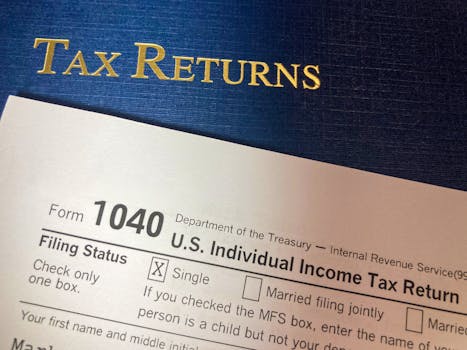Career
How to prepare for tests and practical case assignments in hiring processes
Prepare for success in hiring processes with actionable case interview preparation steps, communication strategies, and real-world examples to build skills and confidence in every assignment or test.
Advertisement
Landing an interview is a win, but navigating case interview preparation and skill tests can still feel unpredictable. Many job seekers find these assignments challenging, yet rewarding when tackled thoughtfully.
Focused practice and structure can replace anxiety with confidence, especially when dealing with case interview preparation. With clear steps, even the most complex business cases become manageable learning opportunities.
This guide outlines approachable strategies and resources so anyone can strengthen their test and case interview preparation—no matter their experience. Let’s clarify what works and why, step by step.
Building a Personal Roadmap for Case Interview Readiness
A personalized plan for case interview preparation helps candidates avoid feeling lost or overwhelmed. Break each goal down into actionable micro tasks for daily progress.
Instead of generic tips, concrete actions—like creating a weekly prep calendar for case interview preparation—make momentum predictable and trackable. Consistency leads to lasting improvement.
Setting Up a Reliable Study Environment
Schedule focused sessions in distraction-free spaces, like a dedicated desk or quiet library room. Turning off notifications, using headphones, and setting a timer all strengthen attention and efficiency.
Pair resources like case interview prep books or online sample tests with physical note-taking for better retention. As you work, note which tasks increase focus so you can repeat them.
Adjust your setup after each session. If you notice energy lagging, tweak your environment—maybe adjust lighting, move locations, or try standing during reviews for renewed concentration.
Micro-Goal Planning and Scheduling
Begin by dividing case interview preparation into daily or weekly themes—for instance, mental math drills on Mondays and written case frameworks on Wednesdays.
Use a visible progress tracker, like a planner or spreadsheet. This small daily check-in makes improvement tangible and highlights weaker sections you should revisit.
Adjust goals based on results, not ambition. For example, if last week’s product launch scenario took 45 minutes, schedule another session specifically to reduce time and sharpen clarity.
| Preparation Component | Action Step | Why It Works | Takeaway |
|---|---|---|---|
| Case Interview Preparation | Practice frameworks | Builds analysis skills | Repeat 5 mock cases/week |
| Knowledge Tests | Use flashcards | Boosts accuracy, recall | Review in 10-min daily bursts |
| Practical Assignments | Replicate real scenarios | Mirrors job expectations | Time each task session |
| Peer Practice | Partner for mock cases | Simulates pressure | Swap feedback every Friday |
| Self-Assessment | Rate confidence by topic | Targets weakest points | List growth areas weekly |
Developing Core Skills with Purposeful Case Practice
Targeted practice moves candidates closer to real-world success in case interview preparation and related assessments, by aligning sessions with the skills assessed in hiring stages.
Approach each practice session with a specific outcome, such as “summarize findings in two minutes” or “use three logic-driven questions.” This keeps drills relevant and focused.
Focusing on Quantitative Reasoning
Commit to one measurable skill per session, like mental math speed. For example, calculate percentage changes between quarterly results out loud to mirror realistic interview pacing.
Create flashcards for basic formulas and calculate real business scenarios, such as revenue growth or breakeven points. Record completion times, aiming to reduce them in future attempts.
- Start with basic operations—addition, subtraction, multiplication, division—using a timer to mirror test pacing, focusing on both speed and clarity with each set.
- List key formulas like profit margin and ROI, solve new sample problems daily, and rate your accuracy score after each set to build data confidence.
- Translate case points into numbers; for example, turn a product launch scenario into financial estimates. This helps tie story elements to actionable data during live interviews.
- Use estimation hacks on practice cases, such as rounding numbers and giving quick ballpark figures to keep answers timely and convincing during real business problem-solving.
- Compare completed cases with answer guides, flag errors, and rework steps to see improvement—revealing learning gaps and boosting reliability under pressure in case interview preparation.
Revisit your tracking sheet weekly, noting which topics need a deeper dive. This kind of recordkeeping transforms struggles into future strengths for case interview preparation.
Sharpening Communication Under Time Constraints
To improve, rehearse concise summaries of findings using a phone or computer voice recorder. Speaking aloud is key for building smooth transitions and logical structuring on the spot.
Imagine an interviewer says: “You have three minutes to summarize your approach.” Practice distilling answers to relevant facts, evidence, and a clear recommendation—avoiding tangents.
- Outline your points in bullet form, then time yourself as you narrate so you build natural pacing for time-limited responses in case interview preparation as expected by employers.
- Pair up with a friend or mentor and request live feedback on one-minute responses. This realistic scenario reveals blind spots and improves spontaneity when answering real cases.
- Conclude each summary with a clear call-to-action, such as, “My next step would involve stakeholder feedback within two days for final approval,” building habit-forming clarity.
- Lean on analogies only if the connection directly clarifies your logic. For example, “Optimizing this process is much like tuning a bike chain—it reduces friction for faster results.”
- After each timed round, note what felt rushed or left out, then script a stronger alternative. Keep new phrases in a notebook for quick review before live assessments.
Practicing under real-world timing and review conditions places candidates ahead of the curve for professional case interview preparation.
Turning Uncertainty Into Learnable, Action-Based Scenarios
Approach unpredictable case interview preparation as a series of repeatable, learnable scripts. This reframes intimidating moments as growth-building opportunities for every candidate, regardless of background.
Scenario planning allows candidates to visualize possible case types and responses, making their reactions more reflexive and composed under real assessment pressure.
Roleplaying Stakeholder Interactions
Picture yourself in a scenario: “As a marketing analyst, your director asks for quick insights about a failing campaign by noon.” Speak or write out your structured approach aloud.
List three key stats, state your main theory, and propose next steps—just as you’d communicate in a real stakeholder meeting. Writing responses keeps logic orderly and reinforces habits for live interviews.
If a peer joins, practice pushing back on unclear directions respectfully: “Could you clarify what you mean by engagement?” Adopting this practical communication in case interview preparation builds confidence.
Anticipating Curveball Test Questions
Expect surprise test instructions like, “Now present your case-solving process visually.” Maintain a calm tone and describe your diagram, noting point-by-point how you’d walk stakeholders through it.
If a data set seems unfamiliar, think aloud: “While I haven’t seen this metric before, I’ll extrapolate based on similar recent campaigns.” Reasoned transparency outperforms nervous hesitancy in most real cases.
Document tricky moments and research each afterward. Add new strategies into your ongoing case interview preparation document for reference before future interviews or assignments.
Infusing Practice With Realistic Job Contexts
Approaching study sessions with job-specific details ensures each round of case interview preparation reflects what employers truly want. Tailoring questions and tasks boosts both relevance and engagement for candidates.
Analyze recent postings for your target roles. Note what terms—like “efficiency analysis” or “user adoption”—appear, then build mock cases using these current priorities for sharper alignment.
Reverse Engineering From Actual Job Descriptions
Highlight soft and technical skills like “stakeholder management,” “cross-functional teamwork,” or “financial modeling.” These are your guideposts for scenario-building and response framing throughout your prep.
Paste three sample job ads into a document. Extract themes, create case prompts around these, and record your responses, focusing on those listed competencies every time.
Ask peers already in similar roles for realistic case examples. Their feedback reveals hidden expectations or recurring nuances, which will anchor your case interview preparation in actual hiring trends.
Matching Preparation To Hiring Process Stages
Map your prep activities to interview rounds: analytical sprints for technical screens, pitch-style responses for panel interviews, or collaborative simulations for group assignments—as these are common in hiring.
List each known round in upcoming hiring processes. Assign unique goals and tasks for every stage, layering skill development in sequence. This structured approach minimizes “surprise” moments on assessment day.
Adapt timing, format, and presentation until responses feel natural. Every repetition reinforces agility while uncovering which skills need strengthening during the ongoing case interview preparation process.
Fine-Tuning Performance and Self-Assessment Cycles
Performance improves with steady cycles of testing, feedback, and targeted adjustment. Making these cycles routine aids rapid progress in case interview preparation, even as case types evolve.
Each round of practice should end with a quick self-score and a note on one thing to upgrade in the next session. Concrete, tracked growth sustains motivation and progress.
Building Feedback Loops with Peers and Mentors
Schedule weekly mock interview sessions with a peer. Give each other structured feedback focusing on clarity, logic, and confidence. Switch roles to keep perspectives balanced.
After each practice, note down three strengths and three immediate improvement areas. This ensures feedback stays actionable and relevant in each cycle of case interview preparation.
If feedback feels vague, try a new template, such as, “What went well, what was unclear, and what should I try next?” This keeps learning concrete instead of discouraging.
Tracking Progress With Reflection and Metrics
Document each assignment or case you complete, logging prep time, pain points, and overall self-rating. Over time, compare these to visualize tangible growth, further strengthening your self-belief.
Run a personal “post-assignment review” where you list: What improved? Where did you hesitate? What’s getting easier? These notes guide the very next round of practice.
Print or digitize your top three positive metrics—for example, time to complete cases, number of logical flaws, and clarity score. Put this progress sheet somewhere visible for motivation between case interview preparation sessions.
Conclusion: Sustaining Growth in Your Case Interview Journey
Clear planning, active case interview preparation, and honest feedback cycles turn assessments from hurdles into chances for practical growth. Each session builds reliability and skill for future job opportunities.
Embrace realistic scenarios, actionable routines, and self-reflection to keep development focused and meaningful. Every mock case, test, or peer review layers real job skills and interview adaptability.
Next time you open a case prompt or receive a test assignment, remember that steady, focused case interview preparation unlocks professional confidence—and turns challenges into reliable strengths.





